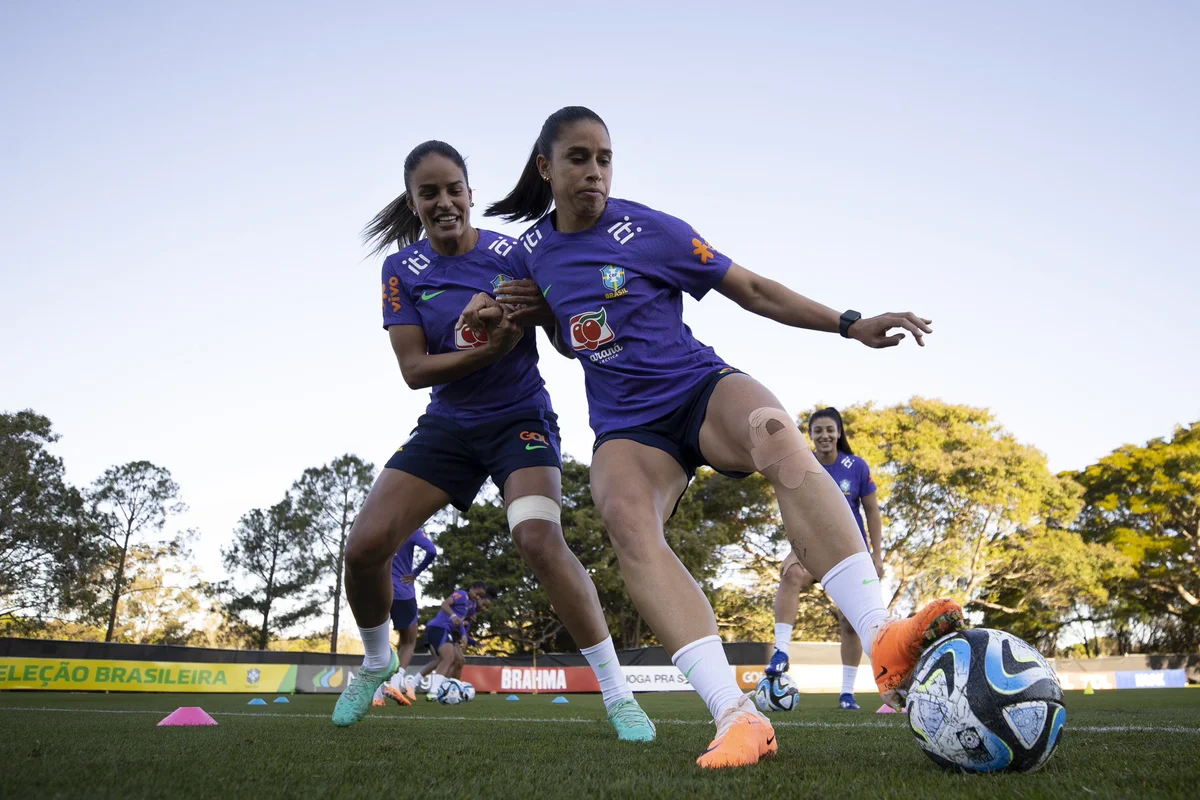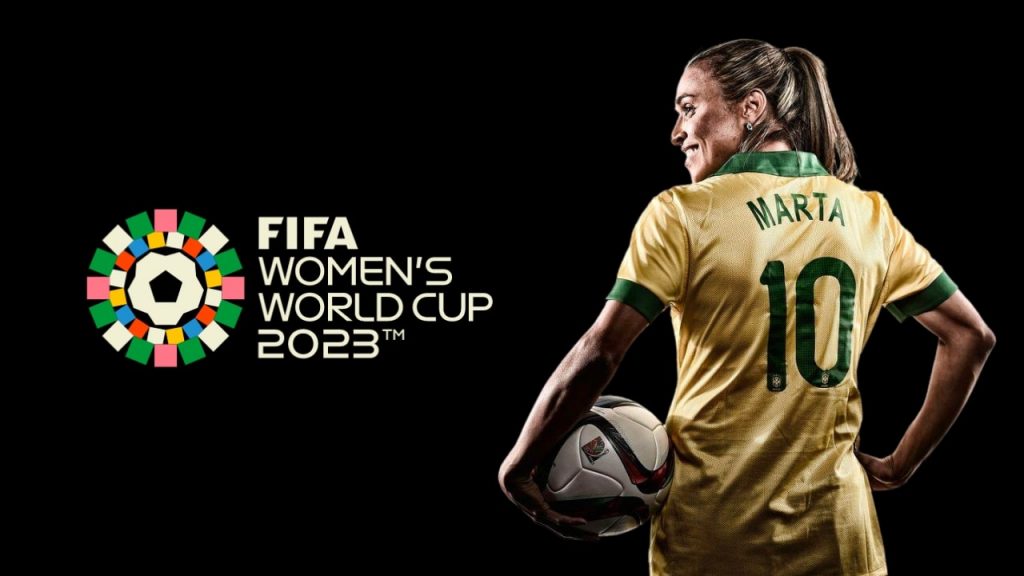Author: Vishwajit Sawant
The next FIFA Women’s World Cup in 2023 is a significant milestone in the tournament’s history. It will be held in Australia and New Zealand, the first time the event will be hosted jointly by two nations. With matches taking place from July 20 to August 20, this edition features a larger format, accommodating 32 teams instead of the previous 24. The unique aspect of this World Cup is its inter-confederation nature, as Australia and New Zealand belong to different confederations. The opening match, between New Zealand and Norway, will kick off at Eden Park in Auckland on July 20, while the Olympic Stadium in Sydney, Australia, will host the long-awaited final on August 20. As the defending champions, the United States will be keen to defend their title, having emerged victorious in the 2015 and 2019 tournaments.
Winners of the FIFA Women’s World Cup:

Since its creation in 1991, the FIFA Women’s World Cup has become a major international soccer tournament. Held every four years, it brings together the national teams of FIFA member countries to compete for glory. In the most recent edition, hosted by France in 2019, the United States won their fourth overall title by beating the Netherlands 2-0 in a thrilling final. It marked his second consecutive World Cup triumph. As a celebration of women’s soccer, the tournament showcases the exceptional talent and dedication of players from all over the world, captivating fans with exciting matches and unforgettable moments. The following list contains the winners and runners-up from previous editions of the FIFA Women’s World Cup:
| Year | Winner | Runner-up | Score line | Venue |
| 1991 | United States | Norway | 2-1 | Guangzhou, China |
| 1995 | Norway | Germany | 2-0 | Stockholm, Sweden |
| 1999 | United States | China | 0-0 (penalties) | Pasadena, United States |
| 2003 | Germany | Sweden | 2-1 (Golden goal) | Carson, United States |
| 2007 | Germany | Brazil | 2-0 | Shanghai, China |
| 2011 | Japan | United States | 2-2 (penalties) | Frankfurt, Germany |
| 2015 | United States | Japan | 5-2 | Vancouver, Canada |
| 2019 | United States | The Netherlands | 2-0 | Decines- Charpieu, France |
Brazil at the FIFA Women’s World Cup:

The Brazilian national team had an average presence at the FIFA Women’s World Cup from 1991 to 2019. Throughout these editions, the team consistently showed its skill and competitive spirit on the international stage, but failed to get its hands on the prestigious trophy. Led by exceptional players like Marta, the team achieved remarkable success, reaching the final in 2007 and finishing 3rd in the 1999 World Cup. Despite failing to lift the trophy, these impressive campaigns highlighted their status as a formidable force in women’s soccer. With their characteristic flair and technical prowess, Brazil have always entertained fans with their attacking style of play. Her performances left an unshakeable mark on the history of women’s soccer.
Women’s World Cup
| Year | Results | Position |
| 1991 | Group stage | 9º. |
| 1995 | Group stage | 9º. |
| 1999 | Third place | 3o |
| 2003 | Quarter-finals | 5a |
| 2007 | Runner-up | 2o |
| 2011 | Quarter-finals | 5a |
| 2015 | Round of 16 | 9º. |
| 2019 | Round of 16 | 10º. |
Brazilian Marta is the top scorer in the history of the Women’s World Cup

Having played 20 matches in five championships, Marta has scored 17 goals. And this is a unique achievement – no footballer (male or female) except her has scored in five World Cups.
List of top scorers in Women’s World Cup history
1. Marta (Brazil) – 17 goals / 20 matches
2. Birgit Prinz (Germany) – 14 goals / 24 matches
3. Abby Wambach (USA) – 14 goals / 25 matches
4. Michelle Akers (United States) – 12 goals / 13 matches
5. Sun Wen (China) – 11 goals / 20 matches
6. Cristiane Rozeira (Brazil) – 11 goals / 21 matches
7. Bettina Wirgmann (Germany) – 11 goals / 22 matches
8. Ann Kristin Aarones (Norway) – 10 goals / 11 matches
9. Heidi Mohr (Germany) – 10 goals / 22 matches
10. Christine Sinclair (Canada) – 10 goals / 21 matches
Format of the 2023 FIFA Women’s World Cup:

In a historic decision, FIFA President Gianni Infantino proposed an expansion of the Women’s World Cup, signaling a significant step forward for women’s soccer. The proposal, presented in July 2019, aimed to increase the number of teams from 24 to 32 for the 2023 edition. Along with this expansion, the tournament’s prize money would be doubled, reflecting the growing recognition and value of women’s soccer. The proposal arose from the resounding success of the 2019 FIFA Women’s World Cup and the 2015 edition, which saw record attendance figures.
Group composition
Group A – New Zealand, Norway, Philippines, Switzerland
Group B – Australia, Ireland. Nigeria, Canada
Group C – Spain, Croatia, Zambia, Japan
Group D – England, Denmark, China, Haiti
Group E – United States, Vietnam, Netherlands, Portugal
Group F – France, BRAZIL, Jamaica, Panama
Group G – Sweden, South Africa, Italy, Argentina
Group H – Germany, Morocco, Colombia, South Korea
By accommodating more teams, the expansion has allowed a greater number of affiliated associations to participate, promoting inclusion and further professionalizing the sport. The FIFA Council unanimously approved the expansion, resulting in eight groups of four teams in the group stage. The two best teams from each group advanced to the knockout phase, starting with the Round of 16. With an increase in the total number of matches from 52 to 64, the tournament mirrored the format employed by the men’s FIFA World Cup between 1998 and 2022. This historic decision propelled women’s soccer into a new era of growth and global reach.
Brazil at the 2023 FIFA Women’s World Cup

The Brazil women’s national team is ready to make its ninth consecutive appearance at the FIFA Women’s World Cup. Having finished runners-up in the 2007 edition, the team is determined to win its first title at the 2023 tournament, which will be held in Australia and New Zealand. Managed by Pia Sundhage, the team’s 23-man roster has been announced as they look to improve on their Round of 16 exits in the 2015 and 2019 editions.
Placed in Group F, Brazil will face challenging opponents such as Panama, France and Jamaica.
BRAZIL – PANAMA – July 24th (Monday)
Time: 8 a.m. (Brasília time)
Venue: Hindmarsh Stadium, Adelaide (AUS)
Where to watch: Globo, SporTV, Globoplay and CazéTV
BRAZIL vs. FRANCE – July 29th (Saturday)
Time: 7am (Brasília time)
Venue: Brisbane Stadium, Brisbane (AUS)
Where to watch: Globo, SporTV, Globoplay and CazéTV
BRAZIL vs. JAMAICA – August 2nd (Wednesday)
Time: 7 a.m. (Brasília time)
Venue: Melbourne Rectangular, Melbourne (AUS)
Where to watch: Globo, SporTV, Globoplay and CazéTV


